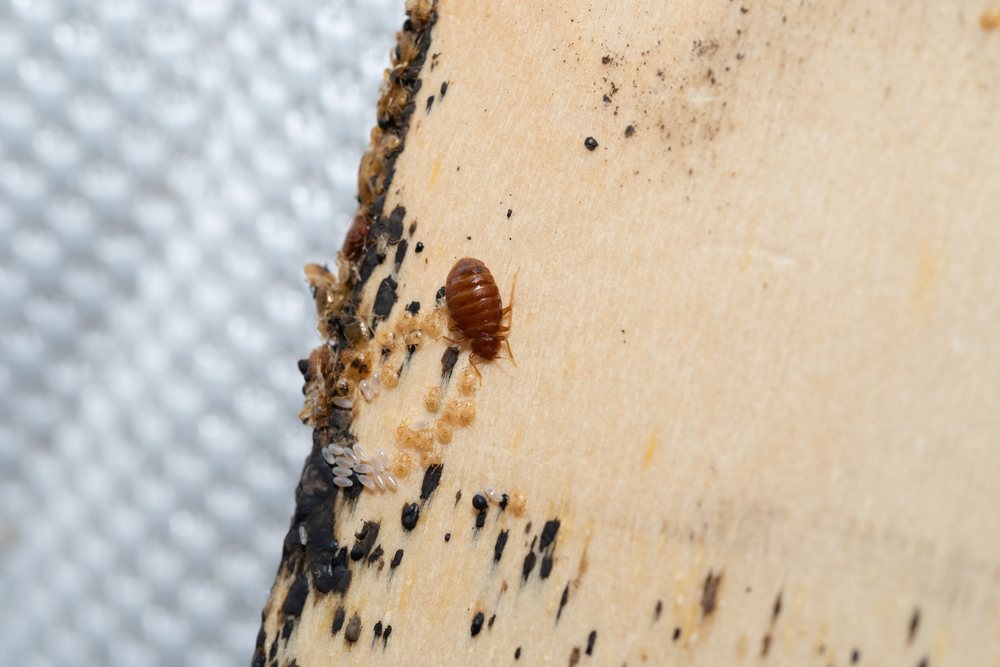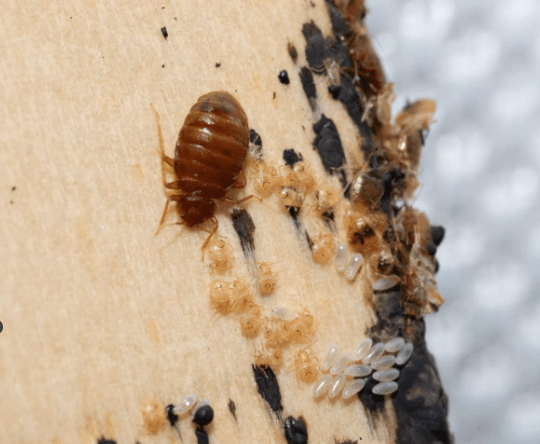Bed bugs are a concern for travelers worldwide. These small, elusive pests can turn a pleasant hotel stay into an uncomfortable experience. Despite the best efforts of hotel management, bed bugs can be found in hotels, ranging from budget accommodations to luxury resorts.
What Are Bed Bugs?
Bed bugs are small, nocturnal insects that feed on human blood. They are typically 4 to 5 mm in length and can be seen with the naked eye. Bed bugs are experts at hiding and can live in the seams of mattresses, furniture, behind wallpapers, and in other crevices within a room.
Page Contents:
3 Reasons Why Are Bed Bugs Prevalent in Hotels
1. High Guest Turnover
Hotels experience a high turnover of guests, which increases the likelihood of bed bug introductions. As travelers come from various places, they can unknowingly bring bed bugs along with them. Once introduced, bed bugs can spread across multiple rooms and floors.
2. Global Travel
The increase in global travel has also contributed to the spread of bed bugs. Travelers from infested areas can carry bed bugs to other countries and continents. Hotels, serving as temporary homes for international visitors, are perfect grounds for these pests to thrive and multiply.
3. Challenges in Detection
Bed bugs are notoriously difficult to detect due to their small size and nocturnal habits. They can remain hidden for long periods and are often only discovered after they have established a significant presence.
Signs of Bed Bugs in a Hotel Room
Here are some signs you can look for to determine if there are bed bugs in a hotel room:
1. Visible Bed Bugs:
Check the seams, folds, and crevices of the mattress, bed frame, and nearby furniture for live bed bugs. They are about the size of an apple seed, reddish-brown in color, and may appear flat or swollen depending on when they last fed.
2. Reddish/Brownish Stains on Bedding:
Bed bugs often leave behind small bloodstains on sheets and pillowcases after feeding.
3. Dark Spots or Stains on Mattress and Furniture:
These may be fecal spots left by bed bugs. They can look like tiny ink spots on fabric or small streaks on hard surfaces.
4. Eggshells and Shed Skins:
Bed bugs molt as they grow, leaving behind translucent, empty eggshells (nymph casings) and shed skins.
5. Musty Odor:
Some people describe the scent of a room with a severe bed bug infestation as sweet or musty. It’s not always present, but it can sometimes be an indicator.
6. Bites on Your Skin:
Bed bug bites often appear as small, red, itchy welts on exposed areas of the skin, such as the arms, shoulders, neck, and face. However, not everyone reacts to bed bug bites, so this isn’t always a reliable indicator.
If you suspect bed bugs, it’s best to notify hotel staff immediately so they can address the issue promptly. Additionally, consider requesting a room change or finding alternative accommodations to avoid potential bites and bringing bed bugs home with you.
How Hotels Manage Bed Bug Infestations
Many hotels have proactive measures in place, including regular inspections by trained staff or pest control professionals. These inspections help catch infestations early before they spread.
Upon detection of bed bugs, hotels typically take immediate action to treat the affected room. This usually involves professional pest control services that may use heat treatments, cold treatments, or insecticides.
Hotels also adopt preventive measures such as mattress encasements, regular vacuuming, and educating staff on spotting bed bugs to reduce the risk of infestations.
Tips for Travelers to Avoid Bed Bugs
1. Inspect the Room:
Upon entering a hotel room, inspect the bed, furniture, and luggage stand for signs of bed bugs. Check the mattress and headboard especially carefully.
2. Use Luggage Racks:
Always use a luggage rack to keep your suitcase off the floor and away from the bed. This can help prevent bed bugs from climbing into your belongings.
3. Keep Belongings Sealed:
Consider using plastic bags or special bed bug-proof luggage liners to keep your clothing and belongings safe during your stay.
4. Report Suspicions
If you suspect that your room has bed bugs, report it to the hotel management immediately and request a different room, preferably in another part of the hotel.
While bed bugs in hotels can be a concern, they are not necessarily a reflection of the hotel’s cleanliness or quality.
Understanding the nature of these pests, how to spot them, and what measures can be taken to avoid bed bugs can greatly reduce the risk of an unpleasant experience.
By staying vigilant and informed, travelers can protect themselves and enjoy their travels with greater peace of mind.




